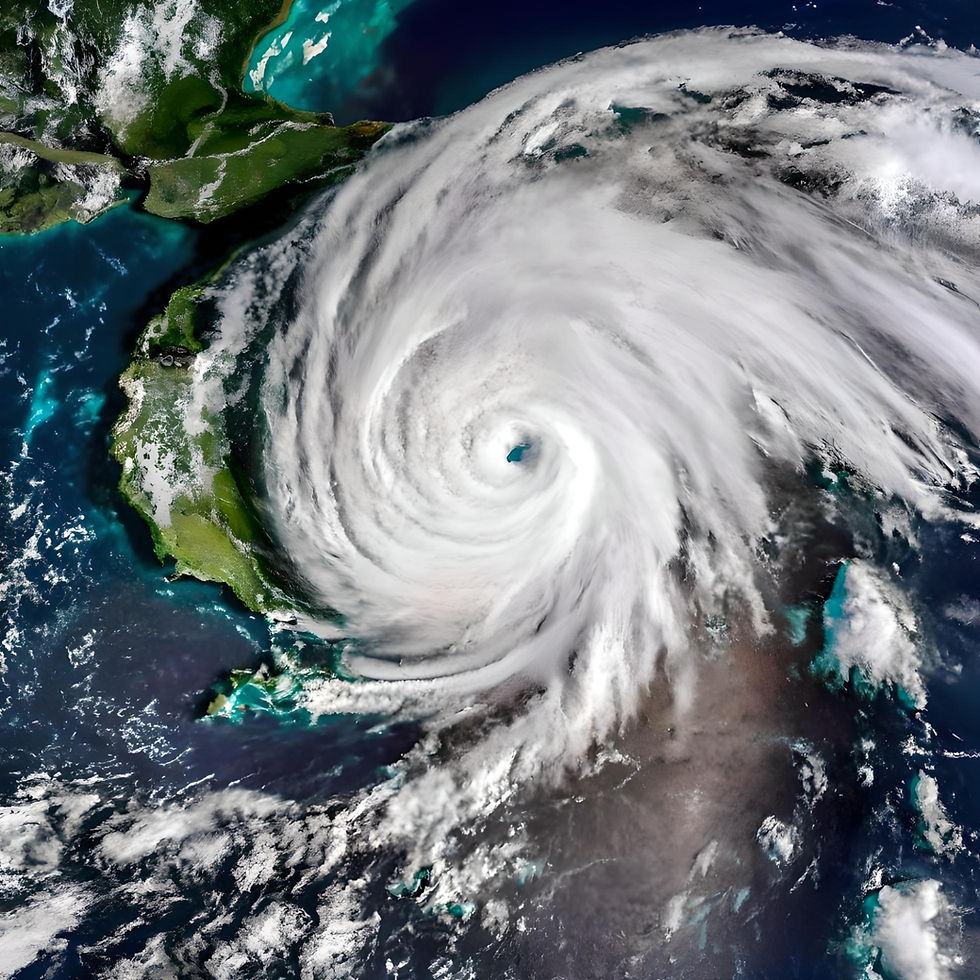Why COP30 Must Prioritize Adaptation for the Global South: A Scientist’s Plea from India’s Coastal Frontlines
- M. Syed Marjuk | Youth for COP Participant
- Nov 5, 2025
- 3 min read
Standing on the deck of the research vessel ORV Sagar Manjusha, watching the Arabian Sea stretch endlessly before me, I realized something profound. The ocean I was studying wasn't just a research subject. It was screaming for help. The satellite data I analyzed daily, the phytoplankton samples I collected, the changing sea surface temperatures they all told the same urgent story that needs to reach the negotiation tables at COP30 in Belém, Brazil.

Look the world through climate scientist in the Ocean research vessel Sagar Manjusha during the climate actions.
India's Blue Carbon Crisis Nobody Talks About
India's Nationally Determined Contributions emphasize renewable energy and forest conservation, which are critical. However, there's a glaring gap. Our 7,500-kilometer coastline and the marine ecosystems that support over 250 million coastal Indians receive inadequate attention in climate adaptation frameworks. During my work with ISRO's OceanSAT-3 project, I've witnessed firsthand how rapidly our coastal waters are transforming. The phytoplankton biomass patterns I model using machine learning aren't just academic exercises. They represent the foundation of our marine food web, the livelihood of our fishing communities, and our ocean's capacity to absorb atmospheric carbon.
When I worked on oil spill assessments in Ennore for Chennai Petroleum Corporation, I saw communities whose entire existence depends on healthy marine ecosystems. These aren't statistics in a policy document. They're fishermen who've noticed their catch declining, women who process fish wondering why the quality has changed, children whose future hangs in the balance. Yet, India's climate finance allocation for marine ecosystem restoration remains minimal compared to terrestrial projects.
What COP30 Must Prioritize for Countries Like Ours
First, climate finance mechanisms must recognize ocean-based solutions with the same urgency as land-based ones. The Global South, particularly coastal nations like India, Bangladesh, and Indonesia, need dedicated funding streams for blue carbon projects like mangrove restoration, seagrass conservation, and sustainable aquaculture that actually works with natural systems rather than against them.
Then, adaptation support for coastal communities cannot wait for the perfect policy. I've coordinated wildlife censuses with the Tamil Nadu Forest Department and worked with communities around Pitchandikulam Forest in Auroville. These experiences taught me that local knowledge combined with scientific tools creates the most resilient solutions. COP30 must establish rapid-response adaptation funds that coastal communities can access without drowning in bureaucracy while their villages literally drown in rising seas.

The Ennore oil spill in Chennai, which occurred in December 2023 during the Cyclone Michaung.
The Implementation Gap That Keeps Me Up at Night
My work integrating artificial intelligence with environmental monitoring shows we have the technology to track climate impacts in real-time. We can predict phytoplankton blooms, model ecosystem changes, and forecast climate vulnerabilities with remarkable accuracy. The science is ready. The solutions exist. What's missing is political will and equitable implementation.
India's NDCs target 50% cumulative electric power installed capacity from non-fossil fuel-based energy resources by 2030. Ambitious? Yes. But where's the parallel commitment to protecting the ocean ecosystems that regulate our climate, feed our population, and buffer our coasts from storms?
As someone who's analyzed data from four research cruises across Indian waters, I can tell you our oceans are changing faster than our policy responses. The zooplankton communities I study are shifting. The species composition is different than what textbooks described just a decade ago. Nature is adapting. The question is whether our climate governance will adapt fast enough.
A Call to Action from the Shoreline
Leaders gathering at COP30 must understand that climate adaptation in the Global South isn't optional or future-tense. It's happening now, with or without international support. Communities are already adapting, scientists are already working, and young researchers like me are already building solutions.
The research vessel returns to port, but the ocean's message remains with me. Every data point, every sample, every model prediction reinforces one truth, time for implementation is now. COP30 must transform from another talking forum into a launching pad for action. Our oceans, our communities, and our future cannot afford another decade of delayed promises.
The tide is rising. So must our ambition.
Disclaimer: The views and opinions expressed in this blog are those of the author and do not necessarily reflect the official policy or position of The Climate Reality Project India & South Asia.










Thank you for publishing my article on your website. I'm honored to share my insights on climate adaptation and ocean conservation, especially in the context of COP30. It's crucial that voices from the Global South are amplified in global climate discussions, and I'm grateful for this platform to contribute to that conversation.